Posted on October 19, 2003 by The Orwell Prize -
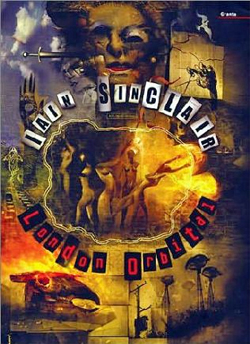
Encircling London like a noose, the M25 is a road to nowhere, but when Iain Sinclair sets out to walk this asphalt loop- keeping within the ‘acoustic footprints’- he is determined to find out where the journey will lead him. Stumbling upon converted asylums, industrial and retail parks, ring-fenced government institutions and lost villages, Sinclair discovers a Britain of the fringes, a landscape consumed by developers. London Orbital charts this extraordinary trek and round trip of the soul, revealing the country as you’ve never seen it before.
Posted on October 19, 2003 by The Orwell Prize -
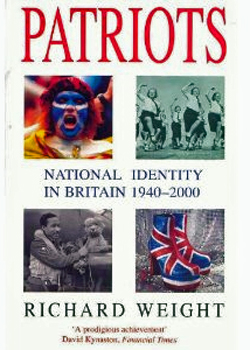
A brilliant cultural, political and social history of British national identity from our ‘finest hour’ in the dark days of 1940 to the Millennium celebrations of Blair’s Britain. Who are the British today? For nearly three hundred years British national identity was a unifying force in times of glory and despair. It has now virtually disappeared. In Patriots, Richard Weight explores the decline of Britishness and the rise of powerful new identities in England, Scotland, Wales and Ireland. Based on a wealth of original research, it is scholarly in depth and scope, yet never departs from a thoroughly readable and entertaining style.
Posted on October 19, 2003 by The Orwell Prize -

Francis Wheen has established himself as one of the most brilliant and admired journalists writing in Britain today with his massively acclaimed biography of Karl Marx, his contributions to radio and TV and his outstanding commentary and analysis.
This book brings together the best of his collected journalism from The Guardian, Observer and magazines such as Esquire and The Modern Review. Ranging from the follies of think-tanks to the future of swearing, the hypocrisy of New Labour to the madness of retired prime ministers, all via shady business deals and scabrous gossip, this is a book that none of Wheen’s legion of admirers will want to miss.
Posted on October 19, 2003 by The Orwell Prize -
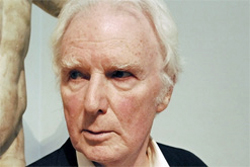
Brian Sewell began his career having graduated from Courtauld Institute, London University. He has worked for The Royal Academy, The British Council, The Arts Council and the Royal Collection at Windsor Castle. He has also written many exhibition catalogues for the Royal Academy and Council of Europe. Since 1984, he has been the Art Critic for the Evening Standard and has won the award for ‘Art Critic of the Year’ on several occasions. For ten years, Brian worked as an Expert in Old Masters for Christie’s. He has advised a number of Museums on purchases and the improvement of collections and has taught in a number of universities. Brian is known as an experienced broadcaster and has contributed to programmes for both radio and television, including various commercials. He has appeared on programmes ranging from Have I Got News for You, The Antique Show, The Great Antiques Hunt, Call My Bluff, The Naked Pilgrim and numerous programmes about art.
Posted on October 19, 2003 by The Orwell Prize -

Neal Ascherson is one of Britain’s finest writers in an undefinable genre that fuses history, memoir, politics and meditations on places. His books on Poland and his collected essays on the strange Britain to which he returned from Europe in the mid 1980s were deeply influential. In 1995, Black Sea won critical praise in many languages and several literary prizes. Stone Voices is Ascherson’s return to his native Scotland. It is an exploration of Scottish identity, but this is no journalistic rumination on the future of that small nation. Ascherson instead weaves together a story of deep time – the time of geology and archaeology, of myth and legend – with the story of modern Scotland and its rebirth. Few writers in these islands have his ability to write so well about the natural context of history.
Posted on October 19, 2003 by The Orwell Prize -

For the last fifty years, the German Occupation of France has been regarded as a period characterised by four things: cold, hunger, the absence of freedom and above all fear; a time when the indigenous population was cruelly and consistently oppressed by the army of occupation. The people of France were either bold members of the Resistance or craven collaborators. In this riveting and provocative study, Robert Gildea reveals a rather different story, a story which shows that the truth lies – as so often – somewhere in between. The winner of the Wolfson History Prize 2002.
Posted on October 19, 2002 by The Orwell Prize -
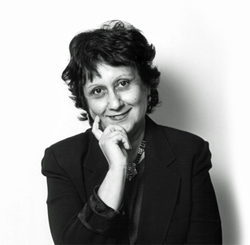
Yasmin Alibhai-Brown came to this country in 1972 from Uganda. She completed her M.Phil. in literature at Oxford in 1975. She is a journalist who has written for The Guardian, Observer, New York Times, Time, Newsweek, Daily Mail and other newspapers and is now a regular columnist on The Independent and London’s Evening Standard. She is also a radio and television broadcaster and author of several books. Her book, No Place Like Home, was an autobiographical account of a twice removed immigrant. From 1996 to 2001 she was a Research Fellow at the Institute for Public Policy Research which published True Colours on the role of government on racial attitudes. Tony Blair launched the book in March 1999. She is a senior fellow at the Foreign Policy Centre. In 2000 she published, Who Do We Think We Are? which went on to be published in the US too, an acclaimed book on the state of the nation. After Multiculturalism, a pamphlet re-assessing the multicultural ideology in Britain was the first critical examination by a social democrat of a settled and now damaging orthodoxy. In 2001 came the publication of Mixed Feelings, a book on mixed race Britons. Her most recent book is The Settler’s Cookbook (2009).
Other links
Posted on October 19, 2002 by The Orwell Prize -

In this bold, provocative and extremely funny book Roy Foster demolishes the clichés that surround Ireland’s past, examining how key moments from its history have been turned into myths – and, more recently, airbrushed and repackaged for Hollywood and popular culture. Whether discussing the ‘misery tourism’ of Famine theme parks, ideas of mystical Celticism, the contested ‘Irishness’ of Yeats or the sentimentalized childhoods of Angela’s Ashes and Gerry Adams’s memoir, The Irish Story brilliantly separates the tall tales from the truth.
Posted on October 19, 2002 by The Orwell Prize -
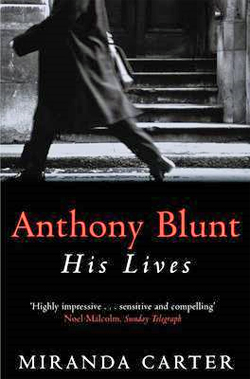
When Anthony Blunt died in 1983, he was a man about whom almost anything could be – and was – said. As Surveyor of the Queen’s Pictures and Director of the Courtauld Institute, Blunt’s position was assured until his exposure in 1979 left his reputation in tatters.
Miranda Carter’s brilliantly insightful biography gives us a vivid portrait of a human paradox. Blunt’s totally discrete lives, with their permanent contradictions, serve to remind us that there is no one key to any human being’s identity: we are all a series of conflicting selves.
- Miranda Carter and Sir David Omand, ‘How intelligent are our intelligence services?’ at the Sunday Times Oxford Literary Festival 2010
Posted on October 19, 2001 by The Orwell Prize -

In ‘real’ wars, whole nations are mobilised, soldiers fight and die, victories are won. In virtual war, hostilities may not even be declared; the combatants are strike pilots and computer programmers, the watching nation is a television audience and instead of victory there is just an uncertain endgame. Kosovo was a virtual war: fought by pilots at 15,000 feet, commanded by generals whose only view of the battle was through their pilots’ bombing sights, reported by opposing media with competing versions of the damage; a war in which Americans and NATO forces did the fighting but only Kosovars and Serbs did the dying.
Michael Ignatieff has travelled these battle zones for a decade, sending back moving reports and penetrating analysis. Yet Kosovo in 1999 moved armed aggression into a new phase, and in Virtual War he examines this strange, remote type of warfare through the eyes of the key players – the roving diplomat Richard Holbrooke, General Wesley Clark and Louise Arbour, chief prosecutor of the war crimes tribunal – and of the people who suffered.
Posted on October 19, 2001 by The Orwell Prize -

Won for journalism published by The Independent. David Aaronovitch is a writer, broadcaster and commentator on culture, international affairs, politics and the media. His regular column appears every Thursday in The Times. A former television researcher, producer and programme editor, he has previously written for The Independent, The Guardian and The Observer, winning numerous accolades, including Columnist of the Year 2003. He has appeared on the satirical TV current affairs programme Have I Got News For You, presented a number of radio and television series and programmes on current affairs and historical topics. His first book, and account of a journey by kayak on the rivers and canals of England, Paddling to Jerusalem, was published in 2000 and won the Madoc Prize for travel writing. In 2009 he published Voodoo Histories, a book on the history and attraction of conspiracy theories.
Other links
Posted on October 19, 2000 by The Orwell Prize -

David began his career as a reporter for the East Antrim Times. He joined the Irish Times in 1973 as a reporter in Belfast, becoming Northern editor in 1976 and London editor in 1981. He worked briefly for BBC Northern Ireland, 1985-6, before joining the The Independent (London) in 1986; he has since worked as the paper’s Irish correspondent. Widely recognised for the scope of his knowledge and the balance of his reporting on Northern Ireland, he contributes regularly to overseas newspapers and journals. His many awards include the Christopher Ewart-Biggs Memorial Prize for the promotion of peace and understanding in Northern Ireland, 1989 and 2001; and Correspondent of the Year, 1999.
Other links
Posted on October 19, 2000 by The Orwell Prize -

Eighteen-year-old Stephen Lawrence, the son of Jamaican immigrants, was murdered on the night of 22 April 1993 whilst standing at a bus-stop, by a gang of white youths. Cathcart wrote a long piece about the murder and all its ramifications for Granta magazine (59), and this is the basis for his book: an account of the crime, the investigation and the criminal culture of South-East London that gave rise to the murderers.
Posted on October 19, 1999 by The Orwell Prize -

As D. M. Thomas states in his masterly biography of the Nobel Prize-winning author Alexander Solzhenitsyn, ‘He helped to bring down the greatest tyranny the world has seen, besides educating the West as to its full horror. No other writer in our century has had such an influence on our history.’
The author of The First Circle, Cancer Ward and The Gulag Archipelago can truly be said to have altered Russia and thus the pattern of our times. This is as much a disturbing, haunting history of the twentieth century as it is a biography of a great novelist. Given the extraordinary language of Thomas and his novelistic gifts which he uses to render his story, this work will come to be regarded as one of the great biographies of recent decades. Particularly impressive is the vast cooperation of Solzhenitsyn’s first wife, Natalya, who has provided an astonishing portrait of her ex-husband’s life in Russia before his departure in 1974 from the then Soviet Union. The photographs used for the book come from her own collection as well.
Posted on October 19, 1999 by The Orwell Prize -
Robert Fisk, Middle East correspondent of The Independent, is the author of Pity the Nation: Lebanon at War. He holds numerous awards for journalism, including two Amnesty International UK Press Awards and seven British International Journalist of the Year awards. His other books include The Point of No Return: The Strike Which Broke the British in Ulster; In Time of War: Ireland, Ulster and the Price of Neutrality, 1939-45; and The Great War for Civilisation: the Conquest of the Middle East.
Posted on October 19, 1998 by The Orwell Prize -

Won for journalism published by The Independent. Polly Toynbee is a political and social commentator for The Guardian. She was the Social Affairs Editor at the BBC, and has worked for The Observer, The Independent and The Washington Monthly. Her books include: A Working Life, a study of unskilled work; Hospital, a study of the NHS; Lost Children: Story of Adopted Children Searching for Their Mothers; and, more recently, Hard Work: Life in Low Pay Britain. Together with David Walker she has written Did Things Get Better?: An Audit of Labour’s Successes and Failures, Better or Worse?: Has Labour Delivered?, Unjust Rewards and The Verdict: Did Labour Change Britain? As well as the Orwell Prize, she has won Columnist of the Year at the National Press Awards and the Political Studies Association’s Political Journalist of the Year award. She is president of the Social Policy Association, and Chair of the Brighton and Hove Arts Festival. She is a visiting fellow of Nuffield College, Oxford and sits on the board of the Political Quarterly. She has four children and lives in Lambeth.
Other links
Posted on October 19, 1998 by The Orwell Prize -

This is the compelling biography of Jennie Lee (1904-1988), the beautiful and passionate daughter of a Scottish miner who rose to become a pioneering woman MP. Regarded as one of the finest political biographies of recent years, this book studies a remarkable woman whose stormy political career culminated in her becoming the first Minister for the Arts, and details the moving and intimate story of her marriage to Aneurin Bevan.
Posted on October 19, 1997 by The Orwell Prize -

Won for journalism published by The Scotsman. Ian Bell was born in Edinburgh and has always lived in Scotland. A columnist on The Herald, he has also worked for The Scotsman, the Daily Record, and the TLS.
Other links
















